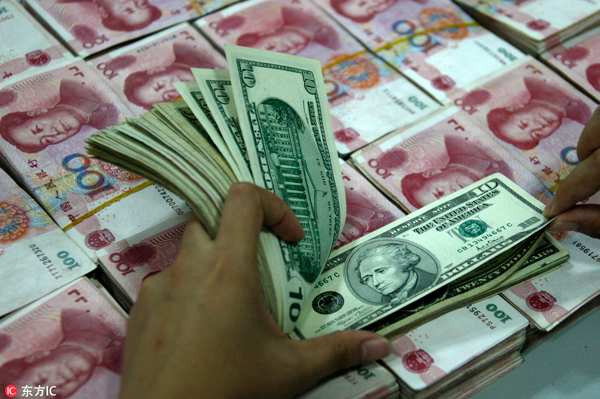China's new rules on cash transactions not capital control: expert
 |
|
A clerk counts yuan bank notes and US dollar bills at a branch of the Industrial and Commercial Bank of China in Huaibei, East China's Anhui province, Nov 28, 2012. [Photo/IC] |
Banks will be required to report all yuan-denominated cash transactions exceeding 50,000 yuan (around $7,100) to the People's Bank of China (PBOC), down from the current level of 200,000 yuan, said a document released by the central bank on Friday.
Cross-border transfers more than 200,000 yuan by individuals will also be subject to the report process.
In terms of foreign currencies, the report threshold remains at the equivalent of $10,000 for both cash transactions and overseas transfers.
The policy stoked worries that the government is trying to impose capital control in a disguised form.
"It is not capital control at all," central bank economist Ma Jun said.
Ma explained that the responsibility of report will be assumed by financial institutions, and there will be neither extra documentation nor official approval procedures for businesses and individuals. "They will not feel any change," Ma added.
The current each person's annual foreign exchange purchase quota of $50,000 is unchanged, and normal activities, ranging from business investment and operation abroad to individuals' overseas trips and study, will not be affected, Ma said.
The PBOC has said the move aims to improve monitoring of money laundering, financing for terrorists, graft and tax fraud, instead of targeting common business activities.
In fact, world's major countries also have similar rules, Ma said, citing that transactions worth $10,000 or more are subject to reporting in the United States, Canada and Australia.
Regulators in those countries can even adopt stricter rules if necessary after obtaining legal authorization, Ma said.









